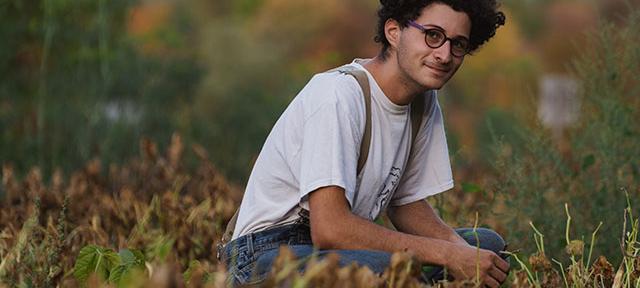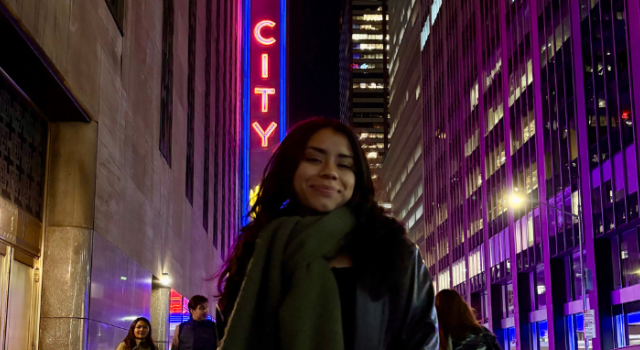For Div I Student Arlo Zwicker, Hampshire College’s Orchards and Gardens are Their Classroom

We sat down (remotely) to talk with Zwicker about their ambitious multi-year and multi-layered projects—including Hampshire’s first bio-charcoal kiln—and what inspired them to choose Hampshire.
Currently in their first year at Hampshire, Arlo Zwicker 20F (they/them) is already fully embracing Hampshire’s hands-on and student-centered approach to higher education. We sat down (remotely) to talk with Zwicker about their ambitious multi-year and multi-layered projects—including Hampshire’s first bio-charcoal kiln—and what inspired them to choose Hampshire.
What attracted you to Hampshire?
I realized during the pandemic, once my high school switched to online, that I started ignoring my classes and getting much more into my own work. I learned more in the last two months of my senior year teaching myself about mycology than I ever had before. I realized Hampshire would be a place where I would be able to teach myself and have support in doing that kind of self-directed learning rather than teaching myself and having the teachers pull my attention.
You are a Div I [first-year] student, but you already have a few projects going on. Can you talk about some of that work?
I’m mostly working on permaculture design through a systems design approach—learning from nature and applying that knowledge to the way in which both ecological landscapes and some social systems are designed. One of the hands-on projects I'm involved in right now is making a bio-charcoal kiln that can be used in agriculture. I am using the kiln in the community garden, as it both increases the fertility of the soil and is a method of sequestering atmospheric carbon. I'm also working with a Hampshire class on that project.
Another project is studying the small apple orchard outside of the Kern Center. I'm hoping to expand the orchard to take up the whole field, creating a polyculture of trees as well as adding layers to the system, which increases the efficiency of the space—so you can get more plants to grow in the space. That also adds to the biodiversity of the system, which also creates a more low-maintenance and resilient system. Right now, I am still observing and analyzing the orchard, but what I'm thinking about right now, for example, is the potential of interplanting fruit trees with nitrogen-fixing trees so we don't need to import any fertilizers from outside of the system into it.
This summer, I’ll be working with a group called the Tzedek Garden Collective in my hometown. I was one of the people who founded it, and we plant sustainable organic, micro-farms on private property and community centers. We establish intensive food producing systems and teach and work with people to grow their diet themselves. Our current efforts are working towards food sovereignty, which put simply is the right of all people to have fresh, sustainably produced, and culturally appropriate food accessible to them.
Who are some of the faculty and staff you’ve been working with?
I'm working really closely with Associate Professor of Applied Design Donna Cohn, Entrepreneurship Program Assistant Roxanne Finn, and Felix Lufkin 04F, who is an alum. Glenn Armitage at the Center for Design helped me with the fabrication of the bio-charcoal kiln.
What advice might you give to prospective Hampshire students?
I think if you are really passionate about your interests, and you want to come to a place where you will be allowed to do basically whatever you are interested in as long as you are willing to put in the work and follow through with it, this is the place!



